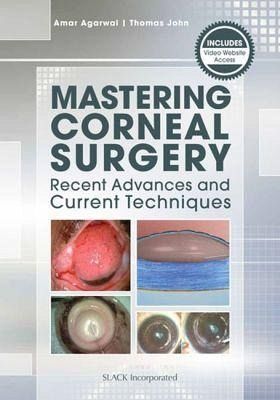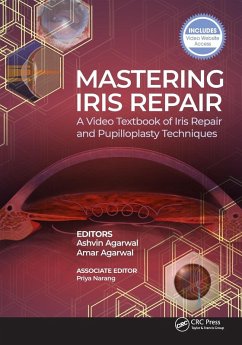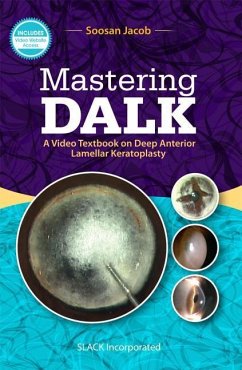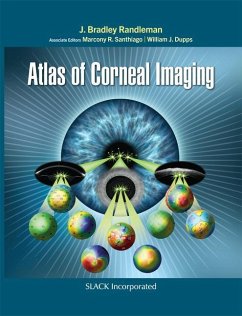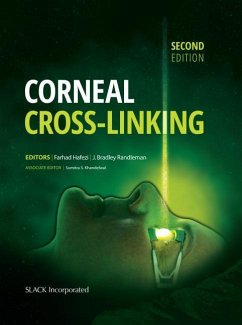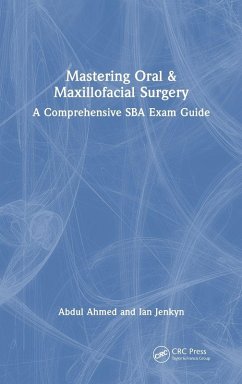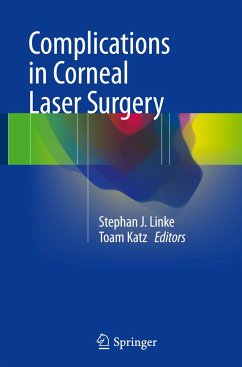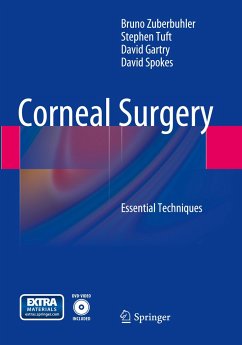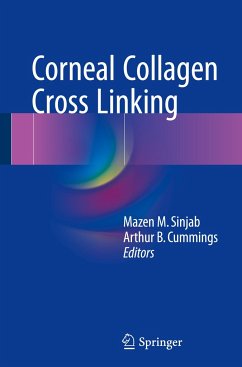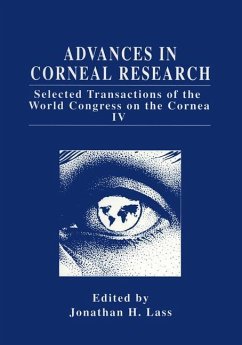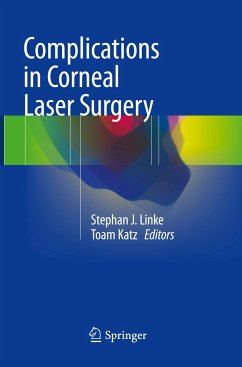Mastering Corneal Surgery
Recent Advances and Current Techniques
Versandkostenfrei!
Versandfertig in 1-2 Wochen
Weitere Ausgaben:

PAYBACK Punkte
103 °P sammeln!




Mastering Corneal Surgery: Recent Advances and Current Techniques comprehensively covers all the recent advances in the existing techniques for common and rare corneal conditions, as well as presents the potential intraoperative circumstances the surgeon can face with their patients.
Amar Agarwal, MS, FRCS, FRCOphth, is the Chairman and Managing Director of Dr. Agarwal’s Group of Eye Hospitals and Eye Research Centre in India, which includes 60 hospitals worldwide; past President of the International Society of Refractive Surgery (ISRS); Secretary General of the Indian Intraocular Implant and Refractive Society (IIRSI); and Professor of Ophthalmology at Ramachandra Medical College in Chennai, India. Dr. Agarwal is the pioneer of phakonit, which is phacoemulsification with needle incision technology. This technique became popularly known as bimanual phaco, microincision cataract surgery (MICS), or microphaco. Dr. Agarwal was the first to remove cataracts through a 0.7-mm tip with the microphakonit technique. He also discovered no-anesthesia cataract surgery and FAVIT, a new technique to remove dropped nuclei. Using an aquarium fish pump to increase the fluid into the eye in bimanual phaco and coaxial phaco has helped prevent surge. This formed the basis of various techniques of forced infusion for small-incision cataract surgery. Dr. Agarwal also discovered a new refractive error called aberropia. He was the first to perform a combined surgery of microphakonit (700-µm cataract surgery) with a 25-gauge vitrectomy in the same patient, thus creating the smallest incisions possible for cataract and vitrectomy. He was the first surgeon to implant a new mirror telescopic intraoperative lens (IOL) for patients suffering from age-related macular degeneration. He was the first in the world to implant a glued IOL, in which a posterior-chamber IOL is fixed in an eye without capsules using fibrin glue. He modified the Malyugin ring (MicroSurgical Technology) for small-pupil cataract surgery into the Agarwal modification of the Malyugin ring for miotic pupil cataract surgeries with posterior capsular defects. Thomas John, MD, was born in India, and lived the majority of his life in the United States. His eye training consisted of an ophthalmology residency at the University of Pennsylvania and a 2-year clinical cornea fellowship at Harvard Medical School, Massachusetts Eye and Ear Infirmary. Dr. John's academic pinnacle was in Boston, training under Drs. Kenyon, Foster, Steinert, Dohlman, Abelson, Langston, Wagoner, Gilbard, Boruchoff, and Bajart. His corneal research experience stems from Schepens Eye Research Institute and Massachusetts Institute of Technology (MIT), Harvard Medical School. He completed ophthalmic pathology training under Drs. Eagle, Rockey, and Yanoff during his National Institutes of Health (NIH) ophthalmic pathology fellowship.Dr. John is currently on the editorial boards of Ocular Surgery News (OSN), Review of Ophthalmology, and Ophthalmology Management, and was previously on the editorial boards of Annals of Ophthalmology (AO), Expert Review of Ophthalmology, and Optometry Management. He was Chief Editor of the Consultation Section of AO; Associate Editor of AO, Chief Editor, Corneal Dissection Column, OSN; and Editor, Journal Techniques in Ophthalmology. He is widely published in peer-reviewed journals and has edited many books, written many chapters, and made numerous presentations. He served as ASCRS panelist and poster judge and was Chief Film Festival Judge for ASCRS in 2013. He performed live surgery, descemetorhexis with endokeratoplasty, at the International Meeting of the Italian Ophthalmological Society in 2007 in Venice, Italy. He developed numerous surgical instruments and holds a patent on an ophthalmic device. He has delivered numerous surgical video presentations. His present book with Dr. Agarwal is an extension of his surgical interests in ophthalmology.
Produktdetails
- Verlag: CRC Press
- Seitenzahl: 346
- Erscheinungstermin: 15. September 2014
- Englisch
- Abmessung: 254mm x 178mm x 19mm
- Gewicht: 652g
- ISBN-13: 9781617116407
- ISBN-10: 1617116408
- Artikelnr.: 40405512
Herstellerkennzeichnung
Libri GmbH
Europaallee 1
36244 Bad Hersfeld
gpsr@libri.de
Für dieses Produkt wurde noch keine Bewertung abgegeben. Wir würden uns sehr freuen, wenn du die erste Bewertung schreibst!
Eine Bewertung schreiben
Eine Bewertung schreiben
Andere Kunden interessierten sich für




